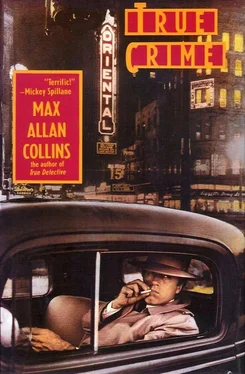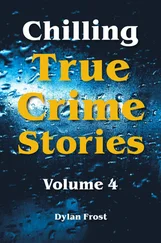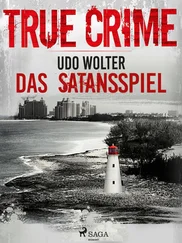“Not familiar with the name.”
“Polly Hamilton? Jimmy Lawrence?”
“No... no...”
“I see. You’re going to play it cute and innocent. Fine. And that traveling salesman who came to me just happened to use your name...”
Piquett stood, glanced out the window, down at City Hall; then moved around from behind his desk and sat on the edge of it. With a patient smile and a run of his hand over the salt-and-pepper pompadour, he said, “Mr. Heller, I am a public figure. Just because someone walks into your office and invokes the name Piquett, that doesn’t make Piquett a part of anything.”
That actually was pretty convincing; I tried not to show it in my face.
But he caught it. And went on: “Futhermore, I may very well have mentioned you as a reliable investigator to several people, who may have passed your name along to this Howard fellow. Yes, it seems to me I have mentioned your name to several other lawyers and a number of other professional people as well...”
Now he’d gone too far; I knew he was faking.
I said, “Why don’t you tell me what’s really going on? Maybe if you cut me in, I’ll play along. Otherwise, I’m liable to blow off the whole deal.”
Hands folded over his vested belly, he sat perched like a leprechaun and said, “What deal?”
I stood. “Think about it, Louie.”
“About what?”
I was going out the door, when he called out, “Always nice to see you, Mr. Heller. Drop by anytime.”
The secretary-receptionist gave me an icy look and I walked out of the office, wondering if I should talk to Captain Stege about this, or maybe try to get through to Cowley — he’d seemed anxious enough to hear my story. Purvis I wanted to avoid at all costs; he was just too damn eager to bag his man.
The elevator ride was just as stifling going down, and in fact after the air-cooled comfort of Piquett’s office seemed even worse. The elevator operator didn’t smell so good.
I slipped out of my coat, when I got outside, LaSalle Street or no, and slung it over my shoulder.
That was when two big guys in suits and ties and hats came up to me and smiled. They looked like they could play catch with a Ford. They both nodded to me.
But only one of them spoke.
He said, “Mr. Nitti would like to see you. Just walk along with us, okay, Heller?”

NITTI
It wasn’t much of a walk to the Capri Restaurant on North Clark Street. Just a block up. Like Piquett’s office, the Capri was close to City Hall, and its large, smoky, air-cooled dining room — the walls paneled in an unfinished oak, the booths covered in brown leather — was crowded with judges, city officials, attorneys, theatrical folk, strictly male. A few of them were heavies: in a booth nearby, Jake Arvey was animated as he chewed Pat Nash’s ear, while Nash seemed more intent on chewing his corned beef and cabbage. I thought I saw Rudy Vallee sitting at a table back in the far left corner, chatting over steaks and chops with a couple of men I didn’t recognize, theatrical agents or producers I supposed.
But I didn’t see Frank Nitti, even though it was widely known that he owned the Capri and held court here.
My two burly escorts escorted me politely to the left, through a glass door into a little tiled waiting area by an elevator. One of the pair, a guy with smile dimples so deep they stood out when he wasn’t smiling, pushed the button for the elevator. It came down and the cage door was opened from within by an elevator operator wearing a suit and tie and a bulge under his left arm.
“Better pat him down,” the elevator operator said.
The other escort, a guy without smile dimples but with several facial moles, said, “He don’t have his coat on, fer crissakes. Where’s he gonna keep a gun?”
As he was saying this, the other guy was patting me down. I didn’t have a gun. Or a knife or a bomb. Just my car keys and a money clip with ten bucks, a five and five ones. These he had me remove from my pockets, however, and examined them and handed them back, laughing a little at the money clip, smile dimples deepening.
“Sure rolling in dough, ain’t ya, dick,” he said, cheerfully.
He was too big to banter with.
So I said, “Right,” and stepped inside the elevator. They followed me.
We went to the third floor, where the two guys got off first. The elevator didn’t go back down; the elevator operator with the suit and the gun bulge stepped out and joined us. We were in an anteroom paneled in that same unfinished oak; the walls were barren.
Opposite the elevator there were double doors, which smile-dimples pushed through; he came back a moment later and, holding the door open for me, gestured with a thumb.
“Mr. Nitti’ll see you now,” he said.
I went in, and my escorts didn’t.
I was alone in a big dining room — cloth-covered tables and along the left wall a banquet table, the walls that same scarified oak — alone, that is, with Frank Nitti.
He sat, by himself, at a table for four at the far right of the room, his back to the corner. He was eating. He looked up from his plate and smiled on one side of his face and waved me over with a hand with a fork in it and looked back at his food.
There was no carpet on the parquet floor and my shoes made small echoes as I weaved through the well-spaced-apart tables back to the corner table, where Nitti glanced up again, half-rose, and nodded to a chair across from him. I sat.
I hadn’t seen him in about a year. He looked skinny and quite a bit older; he’d shaved his mustache off. Still, he was a roughly handsome man, with flecks of scar here and there on his face, notably his lower lip. His hair was slicked back and parted at the left. A former barber, he was always immaculately groomed. His suit was black, his shirt too; his tie was white, with a ruby stickpin.
He was eating what looked to be boiled beef with some small skinned potatoes and some sliced carrots. He was drinking milk.
He must’ve noticed me looking at this less-than-lavish lunch, because he grimaced and said, “Goddamn ulcers. Can you believe it? And this is one of the better meals I had lately.”
“Hardly pays to own a restaurant,” I said.
He smiled a little. “Yeah. Maybe I oughta find another line of work.”
I didn’t say anything; I was nervous. Nitti seemed to like me, but he was an intimidating figure, albeit a short one.
“Heller,” he said, “you look older.”
“You look about the same, Frank.”
“Bullshit. I aged ten years since those bastards shot me last year. If you hadn’t been there and made ’em call an ambulance, I’d be with the angels right now.”
“The angels, Frank?”
He shrugged elaborately. “I’m a good Catholic. Are you a Jew, Heller? You look more like a Mick.”
“I’m both and neither. I never been to church in my life, except your occasional wedding and funeral.”
He pointed his finger at me, and gave me a scolding look. “That ain’t good. Take my advice, kid — get some goddamn religion. You ain’t gonna live forever.”
“Should I take that as a threat, Frank?”
His smile returned; the ruby on his tie winked at me. “No. Just advice. I like you, kid. You did me a favor. I don’t take that lightly.”
“You returned the favor. We’re even.”
“Maybe. But I like you. You know that.”
“Well, uh, that’s good to know.”
“I got respect for you. You got, whaddya call it, integrity. Not too many people got that, you know.”
Читать дальше













